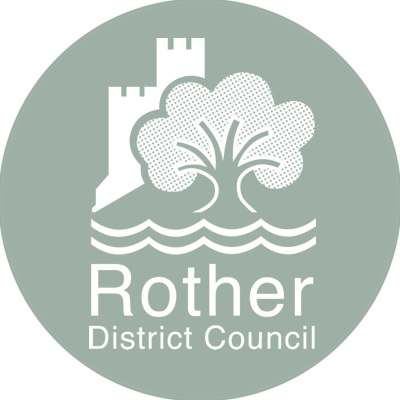Agenda item
Recycling Materials - Volume, Composition, Contamination and End Destinations
Minutes:
East Sussex County Council (ESCC) was responsible for the disposal, recovery and recycling of 254,000 tonnes of domestic waste each year. Approximately 25% was recycled, 16% composted and 52% converted to energy. Just over 3% was reused whilst 4% was deposited in landfill. ESCC was one of the most successful disposal authorities in the country at minimising waste to landfill.
ESCC had appointed Viridor from 29 June 2019 for three years to dispose of and handle all kerbside recycling materials from the five East Sussex local authorities. Materials included paper, cardboard, plastic bottles, pots, tubs and trays, aluminium and steel cans and glass. All materials were delivered to Viridor’s Crayford Materials Recycling Facility (MRF) for sorting, processing into high-quality commodities and selling to recycling markets.
Veolia South Downs Limited delivered and operated the Integrated Waste Management Service Contract awarded in April 2003 until March 2033. Veolia had built and operated three waste and recycling facilities namely Hollingdean MRF, Newhaven Energy Recovery Facility and Woodlands In-Vessel Composting Facility. Each enabled ESCC to recover value from local waste and recycling. They also operated the county’s 10 Household Waste Recycling Sites (HWRS).
To understand the composition of recycling, ESCC continuously sampled collected materials. In July 2019, approximately 91% of recycling collected and delivered at Pebsham comprised of target material; 9% was contaminated. As global stringent quality standards applied, it was important that materials were free of contamination. The Partnership adopted the “fully co-mingled” approach as it offered the best-value to the tax payer however this method of collection meant higher contamination risks. Contamination occurred when residents / members of the public placed incorrect items into kerbside, on-street or HWRS receptacles. Sufficient quantities caused entire loads to be rejected. Visual inspections were carried out by collection crews, at the waste and recycling facilities and reported to ESCC / Partnership. As well as cost implications, it resulted in materials not being recycled. Therefore it was important that a clear and concise communications plan was implemented, along with effective procedures to ensure collections were carried out properly.
Cartons and Tetra Paks were no longer collectable items e.g. long-life milk, fruit juice etc. within the new contract. Viridor’s Crayford MRF was unable to separate these materials for recycling. ESCC was working with Veolia to investigate whether dedicated recycling containers could be provided cost effectively at HWRS. Members were advised that ACE UK based in Yorkshire recycled these materials however initial costings indicated that this would not be cost neutral, so further disposal method investigation was required.
The Government’s ‘Resource and Waste Strategy for England’ included an overhaul of the ‘Producer Responsibility’ system whereby companies who placed material on the market were required to pay for the cost of dealing with the material within the waste stream. Materials could be assigned modulated fees which would mean higher fees for challenging recyclables. Further consultation was expected in early 2020 for proposed implementation in 2023.
The Partnership’s waste and recycling was sold globally by Viridor and Veolia to commercial third parties. The Government’s Environment Agency was the regulating body and monitored shipments to other countries. Assurance had been given that both contractors complied with UK waste shipment regulations. Both contractors were required to provide quantitative and qualitative information regarding recycling and processing, known as “End Destination” performance. This information ensured that there was an auditable trail to provide assurance that the Partnership’s waste and recycling was being managed appropriately. Appendix 1 to the report identified Viridor’s list of end-of-waste destinations, as well as commentary on the processes and products produced. It also identified the outcome of waste collected at Veolia’s HWRS.
Justin Foster, Waste Team Manager, ESCC introduced Simon Prior of Viridor to the Committee who explained that the Company was one of the UK’s leading recycling, resource and waste management companies. He provided Members with a detailed explanation of the services Viridor provided, the processes used, products made and the end destinations of all recovered material and residual waste.
During the discussion the following points were clarified:
· Some materials were exported to China and South East Asia as the UK did not have the facilities to process all recyclables. Aluminium, steel, glass and the majority of plastics were recycled in the UK.
· It was clarified that black plastic trays were difficult to recycle as they contained undetectable dye which was unrecyclable; these materials were isolated during the sorting process.
· Members were reminded that the collection of food waste was not currently required however provision had been made within the Contract to enable the introduction of food waste collections, if required at a future date. Motivating / educating residents’ behaviour was seen as a significant key initiative to generally reduce the amounts of food waste accumulated and the Government be lobbied regarding “used by” dates on food packaging.
· Mattresses were currently deposited in landfill sites; alternative disposal methods were being investigated.
· Viridor was able to deliver talks to Parish and Town Councils, local community groups / organisations if required.
ESCC was committed to driving constant improvement across its recycling contracts and continued to work with both Viridor and Veolia to evidence and document the journey of materials collected.
RESOLVED: That the report be noted.
Supporting documents:
-
JWC190927 - 9 - Recycling Materials – Volume, Composition, Contamination and End Destinations, item JWC19/6.
 PDF 375 KB
PDF 375 KB -
JWC190927 - 9 - Appendix 1, item JWC19/6.
 PDF 3 MB
PDF 3 MB
